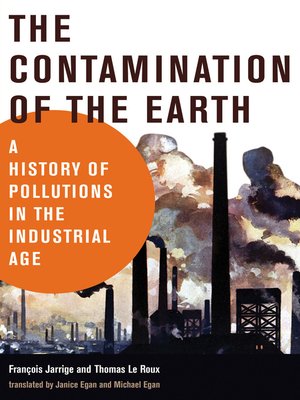The Contamination of the Earth
ebook ∣ A History of Pollutions in the Industrial Age · History for a Sustainable Future
By Francois Jarrige

Sign up to save your library
With an OverDrive account, you can save your favorite libraries for at-a-glance information about availability. Find out more about OverDrive accounts.
Find this title in Libby, the library reading app by OverDrive.



Search for a digital library with this title
Title found at these libraries:
| Library Name | Distance |
|---|---|
| Loading... |
Through the centuries, the march of economic progress has been accompanied by the spread of industrial pollution. As our capacities for production and our aptitude for consumption have increased, so have their byproducts—chemical contamination from fertilizers and pesticides, diesel emissions, oil spills, a vast “plastic continent” found floating in the ocean. The Contamination of the Earth offers a social and political history of industrial pollution, mapping its trajectories over three centuries, from the toxic wastes of early tanneries to the fossil fuel energy regime of the twentieth century.
The authors describe how, from 1750 onward, in contrast to the early modern period, polluted water and air came to be seen as inevitable side effects of industrialization, which was universally regarded as beneficial. By the nineteenth century, pollutants became constituent elements of modernity. The authors trace the evolution of these various pollutions, and describe the ways in which they were simultaneously denounced and permitted. The twentieth century saw new and massive scales of pollution: chemicals that resisted biodegradation, including napalm and other defoliants used as weapons of war; the ascendancy of oil; and a lifestyle defined by consumption. In the 1970s, pollution became a political issue, but efforts—local, national, and global—to regulate it often fell short. Viewing the history of pollution though a political lens, the authors also offer lessons for the future of the industrial world.







